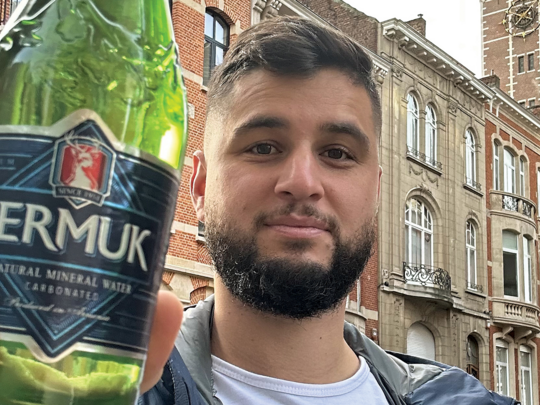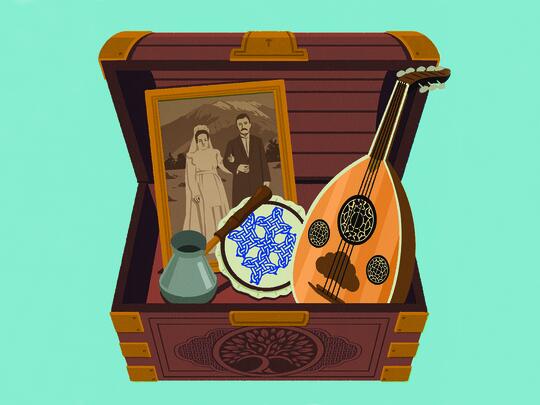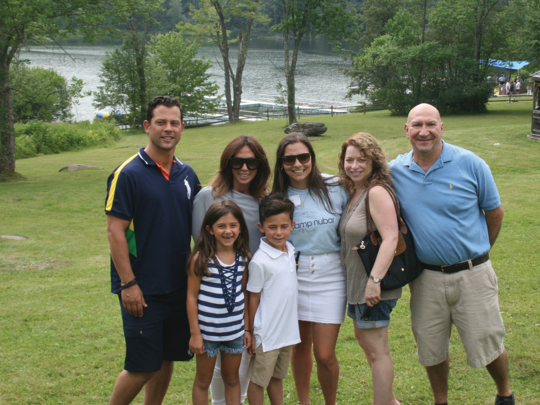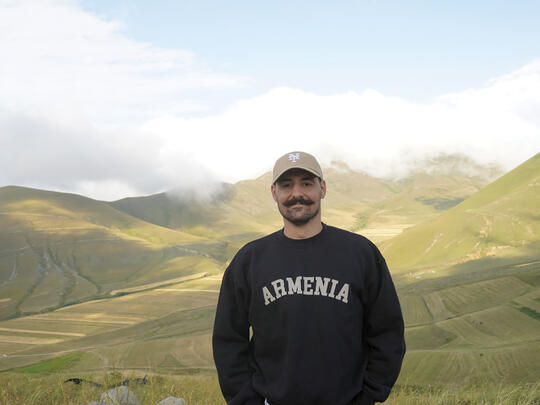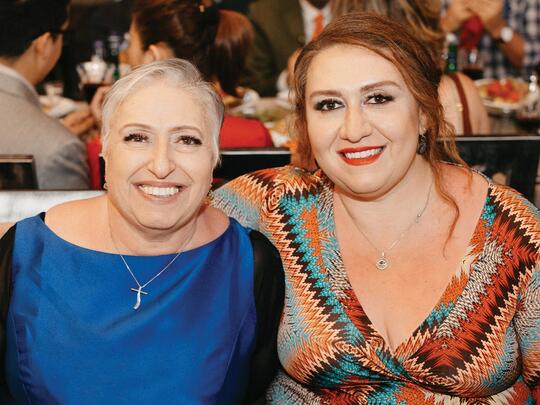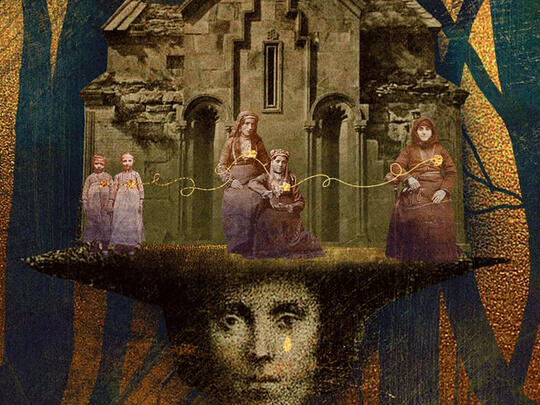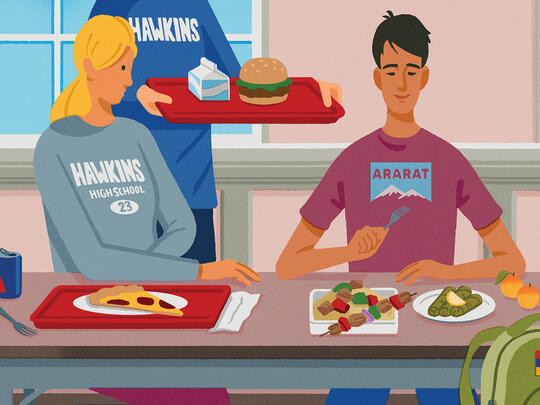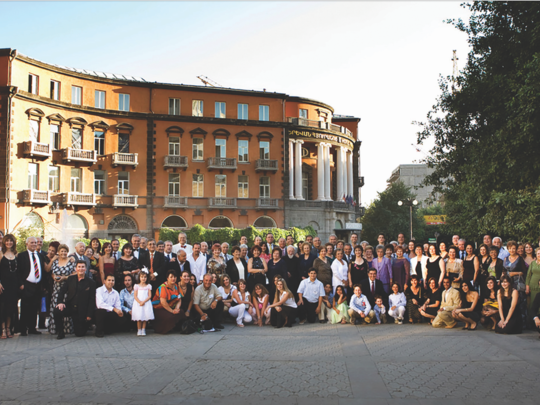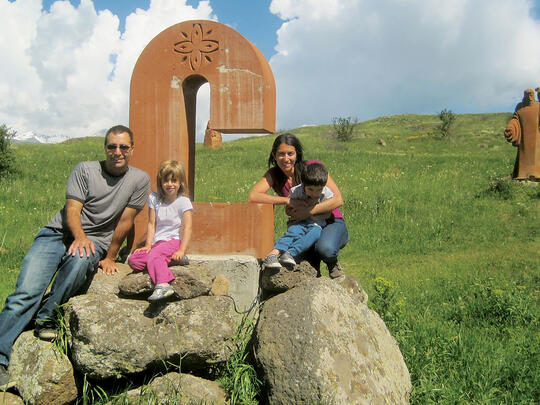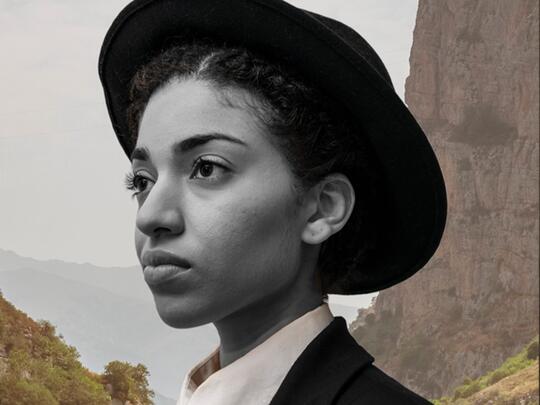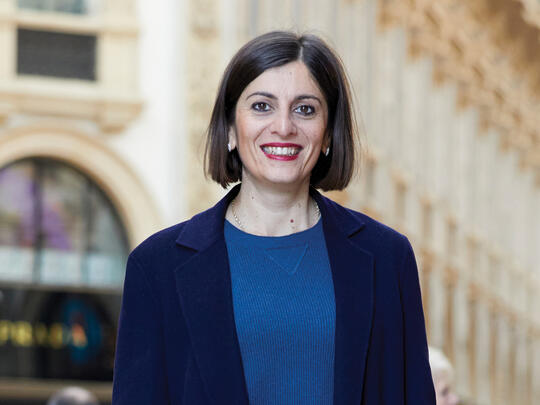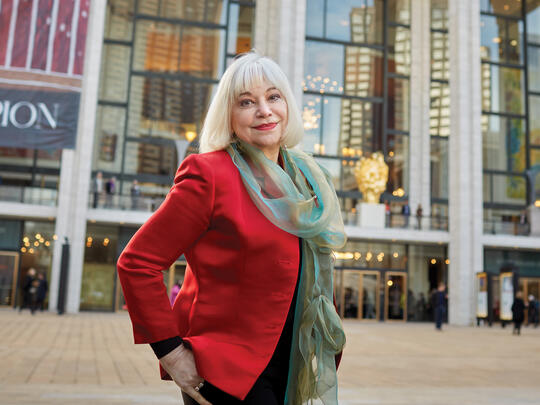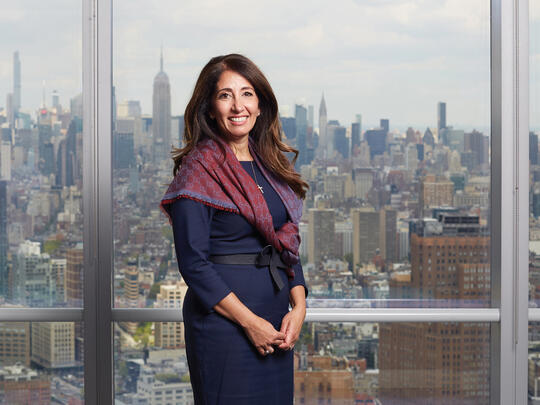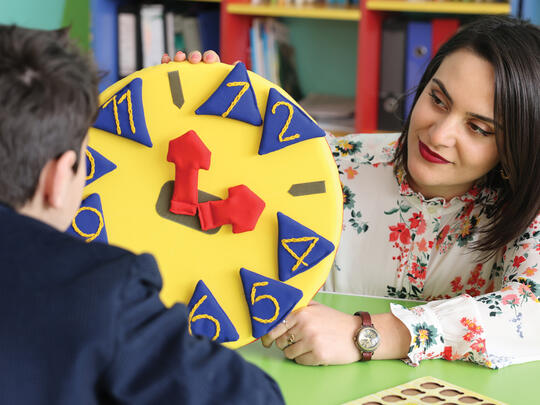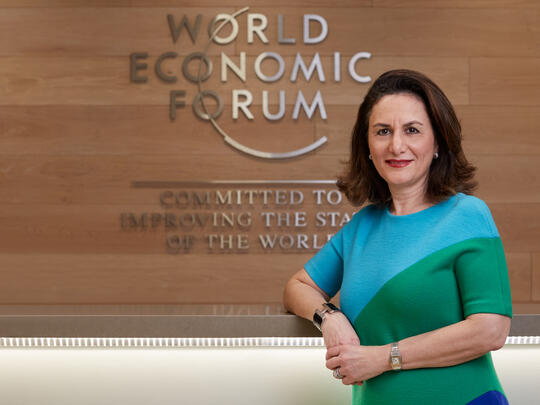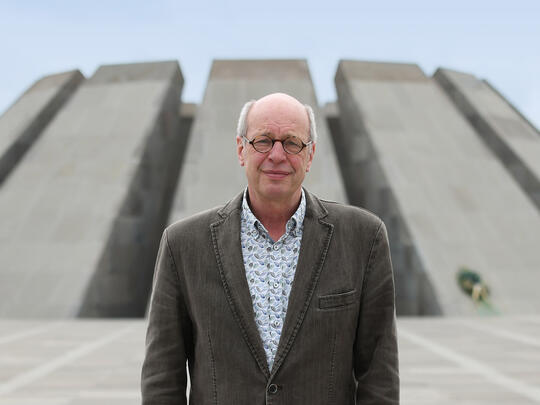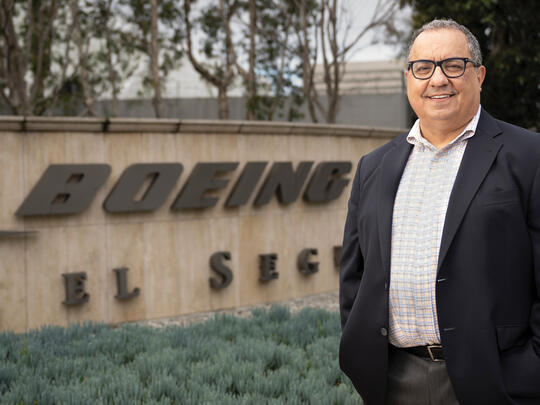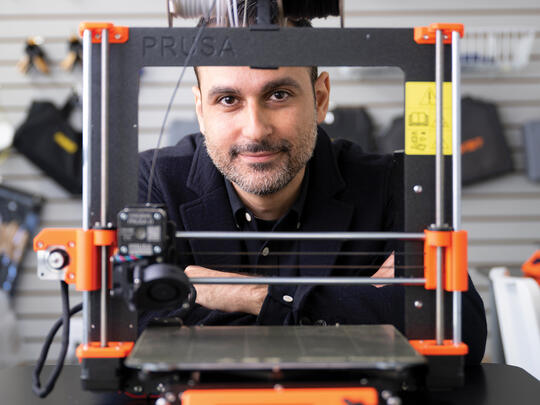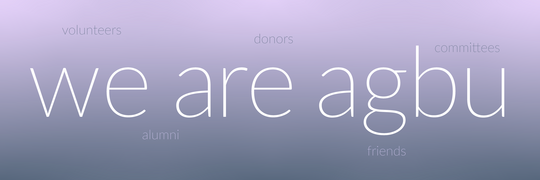
A New Culture and Family
Dirk Roodzant
Camp Nubar enriched my life. It opened my eyes to a new culture, to so many interesting people, and to such a profound and fascinating history. I was teaching my campers and fellow counselors, but as much as I taught them, they were the ones who really taught me. It was always a two-way street.
Dirk is from Dutch Flanders, a part of Europe where he says “you can actually feel and touch history, especially the First World War with its trenches, Napoleon’s Waterloo, and of course the Dutch East India Company.”
This is how Dirk, of Dutch -- not Armenian -- descent, became interested in studying history at Leiden University in the Netherlands. It was during these formative years in college that he started attending AGBU Camp Nubar, and discovered how rewarding teaching and working with children could be. Dirk teaches history to high school students in both Dutch and English, and has chosen to include lessons on Armenia and the Armenian Genocide. He is working on writing a curriculum to push teaching this important part of history in other public schools, and has received an award from the University of Amsterdam for having the best class project on genocides. With the prize money of $10,000, he organized an exchange with a lyceum from Lublin, Poland, working on teaching the same subject. He has had many invitations to give lectures on the remembrance of the Armenian Genocide, along with visiting seminars in Amsterdam, Jerusalem and Paris, and had the opportunity to go to Armenia for research in 2011 and 2012.
Currently, along with teaching, Dirk is working on his PhD dissertation, entitled, “The Dutch Reactions to the Persecutions of the Armenians in the Ottoman Empire (1878-1923),” and for which he has received a four-year government grant. He hopes to pay tribute to the countless people who inspired him some 25 years ago at Camp Nubar, an experience he says marked, molded, and changed his life. Dirk is happily married to his wife, Mayke, and the proud father of their four children: Hilde, 18, Dirk, 17, Aafke, 15, and Teun, 13. Hilde is following in her father’s footsteps and studying history. “Who knows!” says Dirk. “She might visit Camp Nubar soon!”
Why did you choose your field? What led you to it?
From the time I was young, I always liked to work with children. When I was 17-years old, I was already coaching a soccer team. Later, while studying history at Leiden University, I realized that you basically need two things in education: first, a good knowledge of your subject, and second, the ability to interact with kids. The two are intertwined. At university I applied for Camp America and got a funny phone call from Eddy Ajemian of AGBU Camp Nubar. There was a very bad phone connection, and I thought I was going to an Amish camp! A few months later Andre [Farah] and Vahram [Kantarjian] picked me up for an adventure in the Catskill Mountains that forever changed my life.
Camp Nubar turned out to be an Armenian camp with wonderful campers, including Ani Manoukian, who has now become a good friend of mine, but also with great counselors such as Eddy Ajemian, Lisa Kouzoujian, John Ohanian, and so many others. It was one of the best experiences of my life – I had a total sense of freedom and having fun, while teaching children, walking through the creeks, playing games and more. From that point on, I was convinced I would become a teacher.
You are of Dutch descent, living in the Netherlands. What ignited your passion and affinity for Armenia and its rich history, and your dedication to advocating Armenian causes?
When I came to Camp Nubar in 1985, I met dedicated people with a history full of agony, loss and pain. I learned about Armenian history, Mesrob Mashtots, [Vartan] Mamigonian and the influence on Christianity. This all encouraged me to learn more and I became very interested. I had many questions, and I began reading books on the subject and ultimately even meeting some survivors of the Armenian Genocide. In retrospect I think I saw the Armenian Genocide as a great injustice, not being recognized worldwide for what it was: a crime against humanity.
Besides the work I am doing, it’s always a true pleasure to meet and talk with Armenians and surprise them with my ten-sentence knowledge of Armenian: “Parev, eench bess ess? [Hello, how are you?]” or “Shnorhagalem [Thank you].” And I can still count to ten in Armenian, which I learned at camp, while I taught my campers to count in Dutch. And they still remember!
Who is your idea of a leader, and why?
A leader is someone who, in my opinion, leads by inspiring people, by giving his or her ideas and motivating other people. A historic example would be Mohandas Karamchand Gandhi. He was arguably one of the world’s greatest leaders, without being president or prime minister, without having any scientific achievements, but he was a devoted leader of so many because of his ideas and vision.
A leader should have positive energy. This is what we tried to do at Camp Nubar. Working as leader at camp was the perfect job during my university years, it was where I learned how to be a role model for a group of children and young adults by being a positive source of energy.
What is your ultimate goal?
As a person, I think you always develop throughout the years, and try to improve your skills as a teacher, a researcher and a human being. Hopefully, I will finish my research in four years, and after that I plan to write a book about the Kharpert region [of Ottoman Armenia] during the Armenian Genocide, based on eyewitness accounts (American, Arab, Armenian, Danish, German and Turkish.) I have the wonderful help of Charlotte Setyan, a charming lady in Switzerland, who helps me with translations of Armenian texts for this work. The reason I mention her name is because we met through a good contact from Camp Nubar!
What will be next, I am not sure. But after teaching pupils ranging in age from 12 to 18 years, and hailing from countries such as Belgium, England, Finland, France, Poland and Spain, I have learned that there is much truth in the words of the musician Robert Palmer: ‘It takes every kind of people to make what life’s about…every kind of people to make the world go ‘round.’ So when I teach children at school, I tell them to go after their own dreams.
Dirk Roodzant made the journey from the Netherlands to attend the Camp Nubar 50th Anniversary events in New York from July 26 to 28, 2013. He warmly remarked, “So many former campers kept coming up to me to tell me how much of an impact I have had on their lives. That really meant a lot to me, especially since I came in as an outsider and being 100% Dutch. Now feel like I am truly part of the Armenian community.”
Please note that archived content may appear distorted as it has been stripped of formatting and original images.


